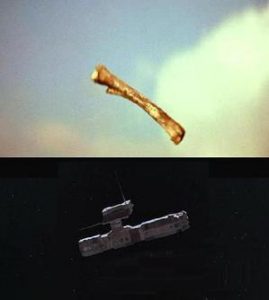The discussions around what has been termed the ‘fourth industrial revolution’, or Industry 4.0, have been swirling around for at least the past couple of years, and there seems to be a growing consensus that the growth of digital technologies is bringing about a significant change in the ways that industry and commerce works now, and will do in the future. And, this is likely to be true for all sectors of the economy. The World Economic Forum website had a good discussion piece about this a couple of years ago, and now there is increasing debate about the effect these changes may, or will, have on education. So, you may have noticed more references recently to the term ‘Education 4.0’ as shorthand to express the changes that we will need to make as educators, both to capitalise upon the affordances of digital technologies for education, and to equip our students to live long and prosper (sorry – Star Trek fan!) in their working lives.
This blog post from Paul Feldman at JISC is a thought-provoking discussion about possible futures for HE in the wake of Industry 4.0, and well worth a read. I’m not sure that I share his view that some of the futures he describes are necessarily dystopian, but what do you think? I tend towards the view that learning technologies haven’t made any real impact on the fundamental processes of higher education so far, but have significantly enhanced the experiences of students taking part in what is still a pretty traditional offering from most universities. Is the nature of that offering likely to change in the future, or is tradition a stronger force than technology? And will the force of Industry 4.0 be the catalyst that sets off a fundamental change in HE provision, and the very nature of universities themselves? Let’s talk about it – please feel free to leave a reply on this post, or suggest a forum where we could open up the debate. Below is how Arthur C. Clarke saw the future of education in 1968, and he had an uncanny knack of spotting the likely shape of distant futures; well, sometimes! Looks like he had an overly-optimistic view of the early 2000’s ;-).
“Bowman had been a student for more than half his life: he would continue to be one until he retired. Thanks to the Twentieth Century revolution in training and information-handling techniques, he already possessed the equivalent of two or three college educations – and what was more, he could remember 90% of what he had learned…So for two hours, from 10:00-12:00, Bowman would engage in dialogue with an electronic tutor, checking his general knowledge or absorbing material specific to this mission.”
Clarke, Arthur C. (1968) 2001: A Space Odyssey, Chapter 17 – Cruise Mode (p.111). London: Arrow Books.









